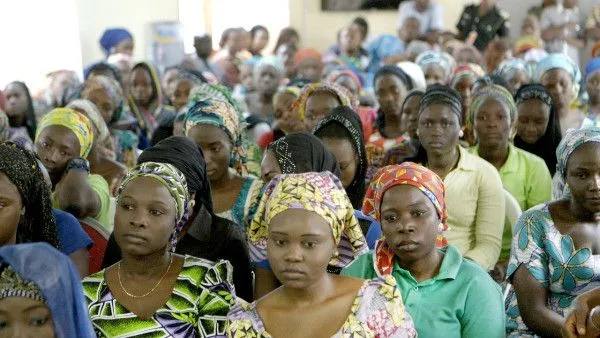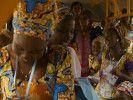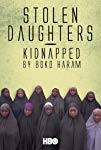Eye For Film >> Movies >> Stolen Daughters: Kidnapped By Boko Haram (2018) Film Review
Stolen Daughters: Kidnapped By Boko Haram
Reviewed by: Jennie Kermode

In April 2014, 276 girls were abducted from their school in Chibok, in northern Nigeria, by soldiers from militant Islamist organisation Boko Haram. The event caused national outrage and made the international press, resulting in a high profile campaign for their release that featured celebrities including Anne Hathaway, Antonio Banderas and Sean Penn. Meanwhile, Nigerian government negotiating teams went to work to try and secure the girls' release. Over 100 were eventually returned and several more managed to escape. But what happened to them afterwards? Gemma Atwal's documentary, given unprecedented access to the secure hostel where they were sent to recover, sets out to tell their story.
Given the prurient interest in the girls' experiences when word first began to come back from the forest to which they were taken, this is a very different film from what might be expected. Atwal is instructed by Nigerian officials not to ask about the girls' time inn the forest (in case it jeopardises the prospect of future releases) but she has other sources; nevertheless, she approaches the matter with sensitivity and restraint. The result is a film that hits a lot harder when we do hear brief accounts of gang rapes and executions. Atwal's focus is on how the girls were enslaved, made to do menial work to support the soldiers, and deliberately terrorised to the point where most dared not even try to escape.

Beyond this, the film focuses extensively on what has happened to the girls since, and this is where it gets really interesting, because the resilience they show at this stage is remarkable. Atwal doesn't seek to draw any conclusions about this, and may in fact be unaware of how rare it is in trauma survivors. It may simply be a result of the girls being kept together so they have other people to talk to who can fully relate to their experiences, but it's clear that they've been given every available form of support, probably due to the level of international interest in their case. For all the unfairness of that approach, it provides an important opportunity for researchers seeking to refine techniques in order to help others in future.
That unfairness is highlighted when the film reveals that, in fact, thousands of girls are thought to be prisoners of Boko Haram at present. Because they were taken in smaller numbers or less dramatic circumstances, they simply never became big news. Over the years, many such girls have escaped, but they are frequently unwelcome when they get home because people fear they have been radicalised. As a result, many live in desperate circumstances. We meet one who has found a reason to keep on living by adopting two boys who are themselves escapees, having been taken to be trained to be child soldiers. This accidental family is barely surviving but there's a loving bond there that is tangible.
By exploring and contrasting stories of this type, the film puts the Chibok incident in context and details something of the wider reach of Boko Haram's activities and the battle for the north. Some Boko Haram members continue to live in the cities with their families but no-one dares to reveal who they are; they seem less a religiously-motivated movement there than simple gangsters.
In contrast to all this, the girls in the hostel have resumed their education and are considering places at university. We never hear any of them express the feelings of guilt or shame that are sadly so common in survivors. Their future is full of potential. They seem to represent what every Nigerian might achieve with that level of investment. For all their suffering, they shine throughout the film, a bright light in the darkness that offers hope to the world.
Reviewed on: 18 Oct 2018
















